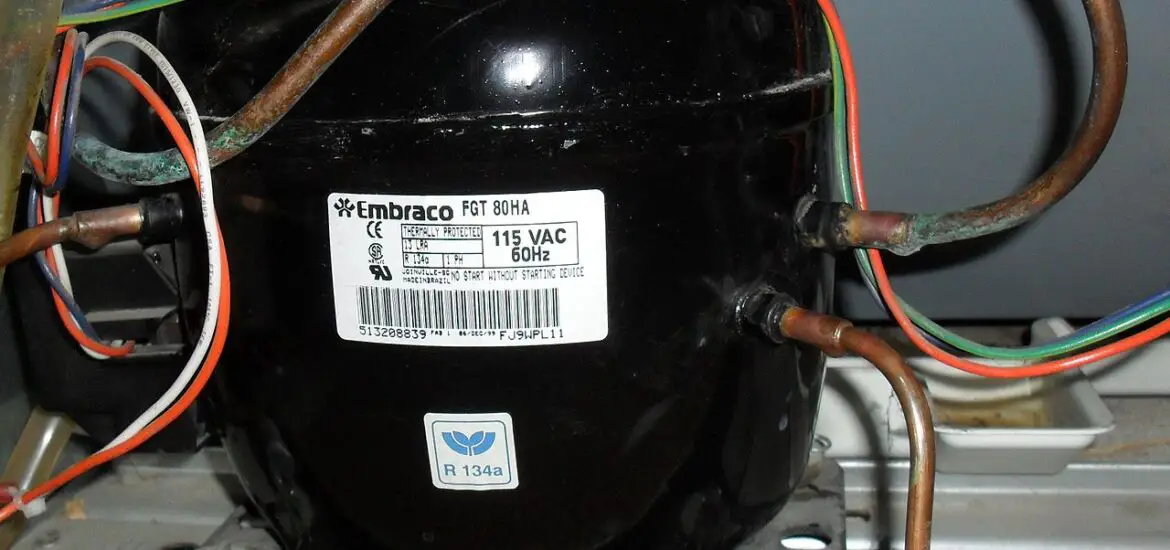Cracking the code of refrigeration compressor HS codes? We’re on it. HS codes, short for Harmonized System codes, aren’t some secret club’s password. They’re a universal language in global trade, a dictionary every importer and exporter needs to speak fluently. This article turns the spotlight on the HS code specific to refrigeration compressors. Buckle up for an enlightening trip into this labyrinth of digits.

Table of Contents
Understanding the Harmonized System (HS)
It’s natural to ask, what on earth is the Harmonized System? Well, think of it as the Esperanto of international commerce. It’s a globally accepted system to categorize and code goods for trading purposes. Put together by the World Customs Organization, the Harmonized System sorts out over 98% of the goods involved in international trade. Quite a big deal, isn’t it?
What is the Harmonized System?
So, the Harmonized System, or HS, is a universal taxonomy for products. It’s a massive library of codes covering every tradeable item you can think of. From refrigeration compressors to bananas, each product has a specific HS code. It’s the international language of trade, understood and recognized across borders.
The Structure of HS Code
Now you’re probably curious, what does an HS code look like? Picture a bar code, but instead of black and white lines, we have digits – six of them, to be exact. But remember, it’s not just any random six digits. Each HS code carries a wealth of information in its structure. It can reveal the product’s category, sub-category, and specific attributes. Amazing, right?
Importance of HS Code in International Trade
Why should I care about HS codes? You might wonder. Imagine going to a foreign country without knowing the language. You could end up ordering a chicken salad and getting chicken liver instead. That’s how crucial HS codes are in international trade. They ensure that everyone is on the same page, making transactions smooth and efficient.
Refrigeration Compressor HS Code
In the vast catalog of the Harmonized System, what is the specific HS code for refrigeration compressors? We’ll uncover that and more in this section.
The Specific Refrigeration Compressor HS Code
Alright, time for the main event. The specific refrigeration compressor HS code is 841430. There, you have it. But don’t rush to fill out your customs form just yet. It’s not just about having the right number. You also need to understand what it means.
Description of the Refrigeration Compressor HS Code
Okay, so we know the refrigeration compressor HS Code. But what does it mean? How does it describe our product? The code 841430 puts refrigeration compressors under the broader category of air or vacuum pumps, air or other gas compressors, and fans; ventilating or recycling hoods incorporating a fan, whether or not fitted with filters.
Interpreting the Refrigeration Compressor HS Code
When you look at the HS code, what do you see? Is it just a bunch of numbers? Or is it a wealth of information waiting to be decoded? The key to decoding lies in understanding the structure. In the case of refrigeration compressors, the code 841430 signifies that it falls under Section 16 (machinery and mechanical appliances; electrical equipment; parts thereof; sound recorders and reproducers, television image and sound recorders and reproducers, and parts and accessories of such articles), Chapter 84 (nuclear reactors, boilers, machinery, and mechanical appliances; parts thereof).
Check out these other related articles…
GE Refrigerator Compressor Reset: Your Comprehensive 411 Guide
LG Refrigerator Compressor Recall: Your Exclusive Scoop
How to Tell if LG Refrigerator Compressor is Bad: Easy Guide
Water Dispenser Compressor Not Working: 4 Proven Solutions
4 Popular Refrigeration Compressor Oil Types: An Easy Guide
Role of the Refrigeration Compressor HS Code in International Trade
HS codes for refrigeration compressors are not mere identifiers; they play an instrumental role in shaping international trade. Think of them as the DNA of your product in the international market.
Impact on Import and Export
HS codes do a lot more than just label goods. They’re instrumental in determining import and export activities. In the grand game of international trade, HS codes are the playing cards. They’re used to calculate tariffs, monitor quotas, collect statistics, and much more.
Determining Tariffs and Trade Policies
Ever get hit with a surprise fee or tax? It’s like getting splashed with cold water, right? Well, HS codes prevent those unpleasant surprises in trade. They’re used to set customs duties and trade policies. By knowing the HS code for refrigeration compressors, businesses can anticipate the associated tariffs and avoid any nasty shocks.
Statistical Tracking and Analysis
HS codes also help in tracking the flow of goods globally. Think of it as a GPS for your refrigeration compressor. You can track where it’s been, where it’s going, and how it’s performing in the global market. This data is invaluable for policy-making and market analysis.
Compliance with Customs Regulations
Customs officers aren’t the type you want to mess with. They’re like the gatekeepers of international trade. And they take their jobs seriously. Using the correct HS code for refrigeration compressors helps you avoid running afoul of customs regulations. It’s like having a valid passport for your product.
Common Misunderstandings about Refrigeration Compressor HS Code
Like a complex piece of machinery, HS codes can sometimes be misunderstood, leading to erroneous interpretations and usage. These mistakes, however, are not without consequences.
Misinterpretation of the Code
HS codes aren’t always easy to interpret. It’s like trying to understand modern art. You might look at the same painting and see something different than the person next to you. The same goes for HS codes. Misinterpretations can lead to confusion, incorrect classifications, and potential legal issues.
Consequences of Incorrect HS Code Usage
Mistakes in using HS codes can be costly. It’s not like spilling coffee on your shirt. It’s more like stepping on a landmine. Incorrect HS code usage can result in fines, delays in delivery, and even confiscation of goods. It’s a pitfall you definitely want to avoid.